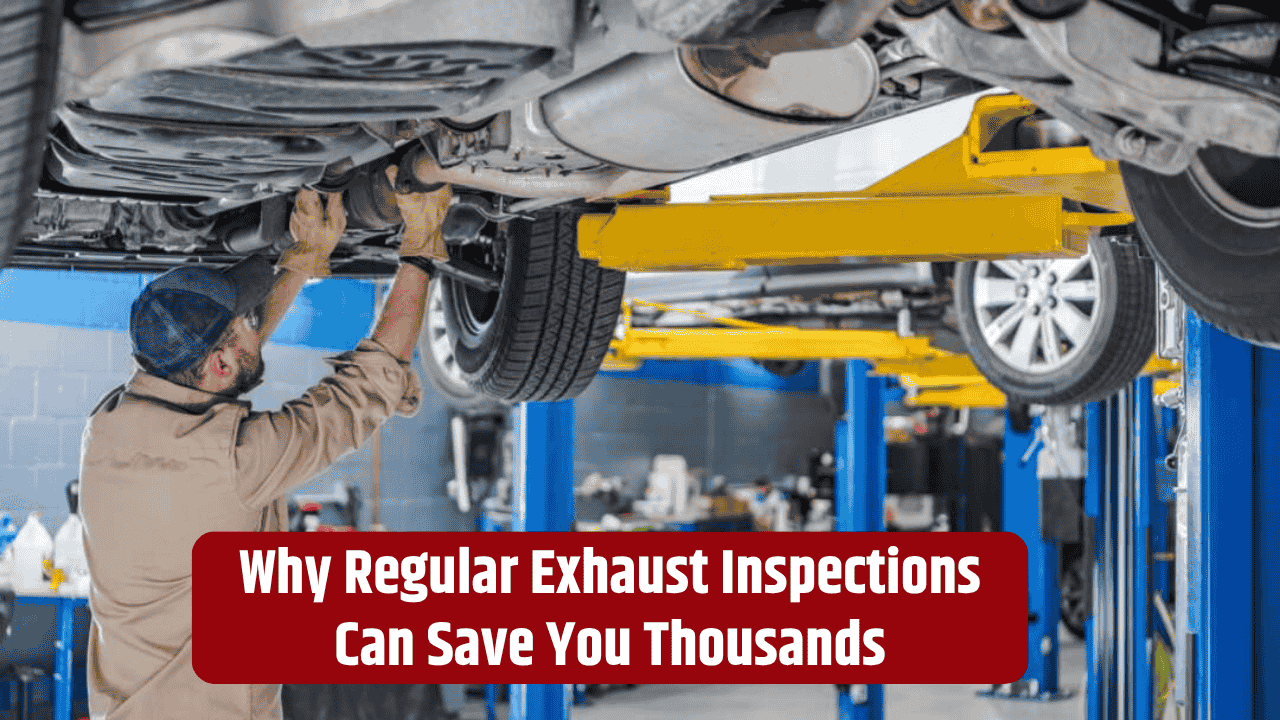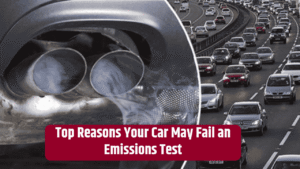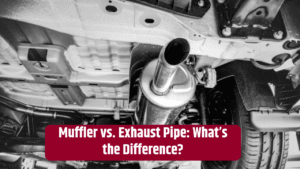Vehicle maintenance often gets put on the back burner—until something goes wrong. But one overlooked component can cost you big if ignored: your exhaust system. While it may not seem urgent, regular exhaust inspections can prevent costly repairs, improve fuel efficiency, and even protect your health.
What Does the Exhaust System Do?
Your car’s exhaust system isn’t just about muffling noise—it plays several vital roles:
- Redirects harmful gases away from the engine and passenger cabin
- Reduces emissions through catalytic converters
- Improves engine efficiency by managing backpressure
- Controls noise from combustion
Without a healthy exhaust system, you risk toxic fumes entering the cabin, poor fuel economy, and even engine damage.
The Cost of Neglect
Skipping regular inspections can allow small problems to escalate. A small leak or crack in the exhaust pipe might not seem urgent, but it can snowball into engine issues or failed emissions tests.
Here’s a quick comparison:
| Problem | Cost if Caught Early | Cost if Ignored |
|---|---|---|
| Minor exhaust leak | $100–$250 | $1,000+ (engine damage, full replacement) |
| Rusted muffler | $150–$300 | $800+ (systemwide corrosion) |
| Catalytic converter issue | $200 (early fix) | $2,000+ (replacement + fines) |
Safety and Health Concerns
One of the most serious risks of a damaged exhaust system is carbon monoxide exposure. This odorless, colorless gas can leak into your vehicle and pose a severe health hazard.
Symptoms of exposure include:
- Headaches
- Dizziness
- Nausea
- Confusion
Regular inspections catch leaks before they become dangerous, especially in older vehicles where seals may be deteriorating.
Better Fuel Economy
A faulty exhaust system can lead to increased backpressure, forcing your engine to work harder. That means more fuel consumption and more frequent fill-ups.
A clean, efficient exhaust system helps your engine “breathe” better—improving fuel economy by up to 10%, which could mean hundreds of dollars in savings each year depending on your driving habits.
Passing Emissions Tests
Many states require annual or bi-annual emissions testing. A faulty exhaust system, particularly the catalytic converter or oxygen sensors, is a common reason for failed tests.
Failing a test can lead to:
- Fines or registration denial
- Costly diagnostics
- Full component replacements
By inspecting your system regularly, you can stay compliant and avoid those unexpected expenses.
When Should You Get Your Exhaust Inspected?
Experts recommend inspecting your exhaust system:
- Every 12,000 to 15,000 miles
- During routine oil changes or tire rotations
- Immediately if you hear rattling, hissing, or excessive engine noise
- If your “Check Engine” light turns on
Maintaining your exhaust system isn’t just about emissions—it’s about saving money, improving performance, and protecting your health. Regular inspections are inexpensive but can prevent major repairs and long-term damage. Think of it as a small investment in your vehicle’s future—and your wallet.
FAQs
How can I tell if my exhaust system has a problem?
Unusual noises, decreased fuel efficiency, or a persistent exhaust smell are common signs.
Is exhaust system damage covered by insurance?
Typically not unless caused by an accident. It’s considered normal wear and tear.
Can I inspect my exhaust system myself?
You can look for visible rust or listen for strange sounds, but a professional inspection is recommended.
How long does an exhaust system last?
Most last 5–7 years, but road salt and driving habits can shorten their lifespan.
Is it safe to drive with an exhaust leak?
It’s not advisable. Leaks can let toxic fumes enter the cabin and degrade engine performance.



